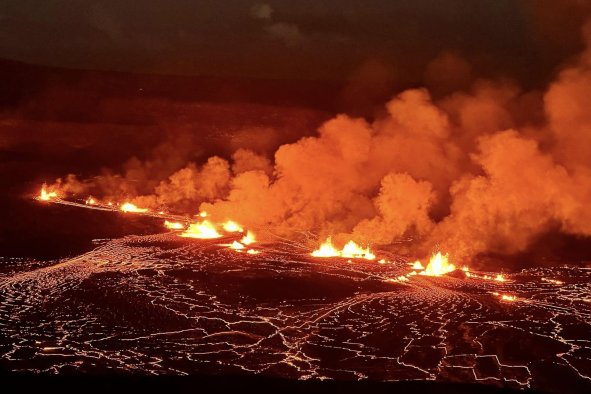Panama is one of the many countries around the world that is at risk of losing large areas of its coastline to sea level rise, with a new report finding that over 2 percent of its coastline is in danger.
This finding comes after Panama began preparing to evacuate the residents of the island of Gardi Sugdub—inhabited by the indigenous Guna people—due to rising sea levels causing increasingly severe flooding and storms, making life unsustainable.
The new report, developed by Panama's Environmental Ministry's Climate Change directorate using data from the Intergovernmental Panel on Climate Change (IPCC), shows that 2.01 percent of Panama's total land area may be at risk of coastal flooding by 2050.
A map of the country reveals the areas most at risk, showing that areas including Isla Carenero, Changuinola, Bastimento, and other coastal areas will be worst affected.
"The results of the study show that 2.01 percent of the country's total area has the possibility of presenting coastal flooding by 2050," the researchers wrote in the report.
Sea levels around the world are rising due to the impacts of climate change and subsequent global warming. Large masses of ice, such as glaciers and ice sheets in Greenland and Antarctica, are melting due to increasing global temperatures, turning into water that flows into the oceans, and raising sea levels. Additionally, warmer water expands to take up more space, leading to even higher sea levels.
"The impacts of climate change are evident, and it is one of the great challenges facing humanity in the 21st century. Panama does not escape from this and is mainly vulnerable to the effects of climate change, evidencing disasters resulting from hydroclimatic threats such as flooding, longer dry seasons, and rising sea levels sea, among others," the report said.
The IPCC provides projections for sea level rise based on different greenhouse gas emission scenarios. Under a low emissions scenario—assuming we drastically cut out carbon emissions—sea levels are estimated to rise on average by between 1 and 2 feet by 2100 relative to the 1986-2005 baseline. A high emissions scenario, however, could result in up to 3.6 feet of sea level rise worldwide by 2100, and up to 6.6 feet by 2150, according to the IPCC's 2021 report.
Certain areas are expected to experience the effects of sea level rise much more severely than others, due to variations in ocean currents and temperatures, as well as differences in land subsidence (sinking) and uplift (rising).
Rising sea levels are dangerous to communities because they cause increased flooding, erosion, contaminate freshwater resources, damage infrastructure, and pose health risks, all incurring high economic costs and potentially leading to people needing to relocate.
Panama is already experiencing the negative impacts of climate change, as the tiny island of Gardi Sugdub prepares to relocate its residents.
"The islands on average are only a half-meter above sea level, and as that level rises, sooner or later the Gunas are going to have to abandon all of the islands almost surely by the end of the century or earlier," Steven Paton, director of the Smithsonian Institution's physical monitoring program in Panama, told NPR. "All of the world's coasts are being affected by this at different speeds."
Over 60 other communities along Panama's Caribbean and Pacific coasts are also expected to be forced to relocate in the coming years, all thanks to increasing sea levels.
"This information will be used to develop an adaptation plan for the Panamanian coasts, which will allow decision-makers from the different sectors affected or impacted by the present and future consequences of the rising sea levels. The study will serve as a scientific basis that will provide the beginning towards the analysis and evaluation of the associated marine hazards to waves and sea level that can affect coastal risks," the report stated.
Do you have a tip on a science story that Newsweek should be covering? Do you have a question about flooding and sea level rise? Let us know via science@newsweek.com.
Disclaimer: The copyright of this article belongs to the original author. Reposting this article is solely for the purpose of information dissemination and does not constitute any investment advice. If there is any infringement, please contact us immediately. We will make corrections or deletions as necessary. Thank you.



